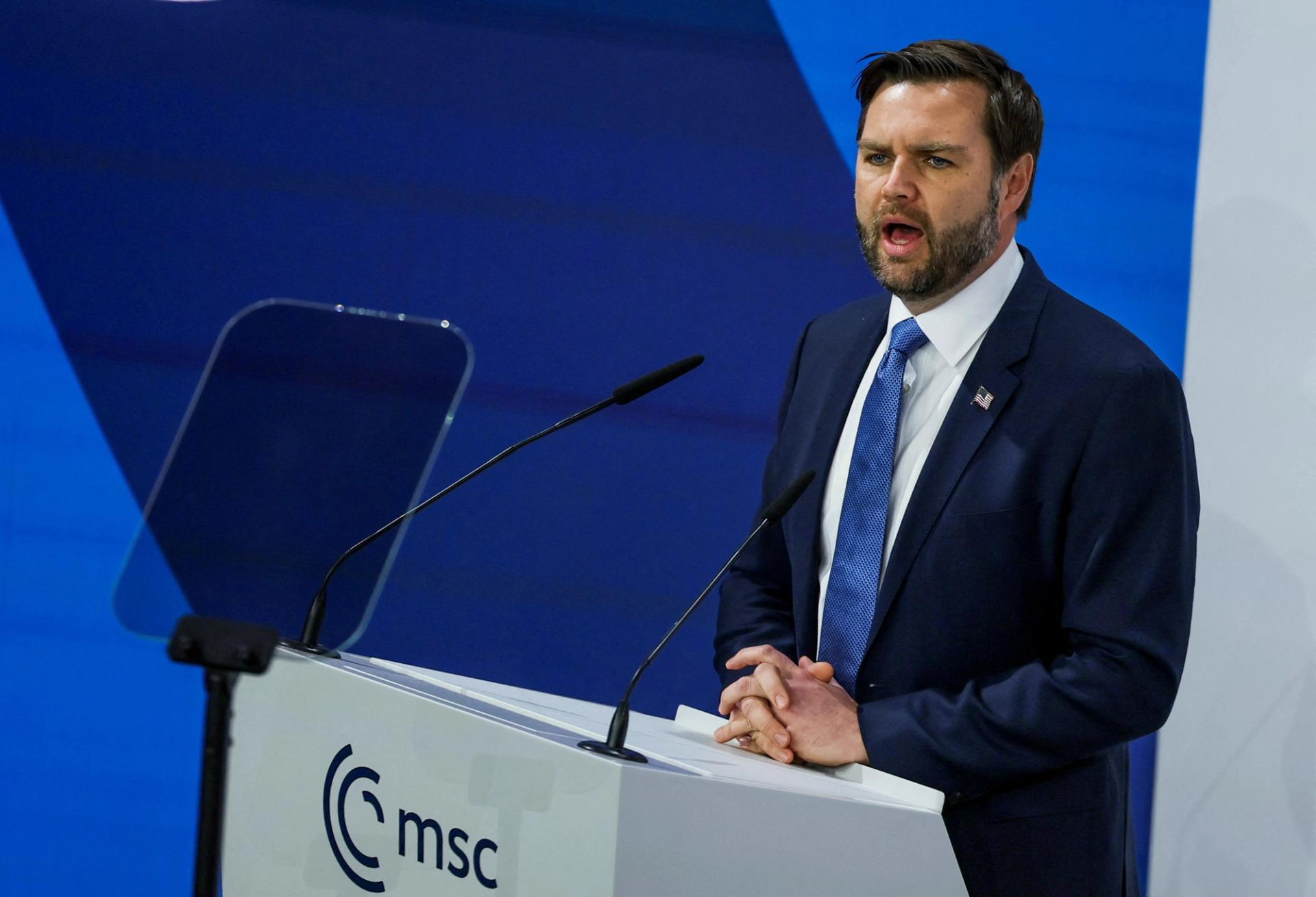The News
US Vice President JD Vance stunned members of the audience in a speech at the Munich Security Conference Friday, by attacking Europe on its approach to immigration and free speech, and claiming that democracy on the continent is “backsliding.”
Conference attendees expected Vance to address US President Donald Trump’s approach to ending the Ukraine war and NATO defense spending; Vance, however, did not mention Ukraine in his first major international speech, instead focusing on culture war issues, including criticizing European leaders for suppressing free speech.
He said the larger threat was not from Russia, but from within Europe: “The threat I worry most about… is the retreat of Europe from some of its most fundamental values, values it shares with the United States of America.”
Vance also urged Germany’s mainstream political parties to work with the far-right Alternative for Germany party to curb migration ahead of the country’s national elections on Feb. 23. Before his speech, the vice president told The Wall Street Journal: “It’s really about censorship and about migration, about this fear that President Trump and I have, that European leaders are kind of terrified of their own people.”
German leaders pushed back against his remarks Friday with the country’s defense minister bristling at Vance’s suggestion that Europe was similar to an authoritarian regime, saying: “This is not acceptable. This is not the Europe, not the democracy, where I live.”
A German government spokesperson said Vance should not interfere in the country’s elections: “I don’t think it is right for foreigners, including those from friendly foreign countries, to interfere so intensively in an election campaign in the middle of an election period.”
Some political observers echoed German leaders’ responses. Carl Bildt of the European Council on Foreign Relations said Vance’s speech was “significantly worse than expected,” calling it “irrelevant to European or global security concerns” and accusing him of “blatant interference” in Germany’s election.
The Munich Security Council’s annual poll found that Germans showed a significantly increased concern about the US as a perceived threat compared to last year’s poll, placing it on the same threat level as North Korea.
Know More
Vance’s speech came as US Defense Secretary Pete Hegseth said Friday that US troops could not be expected in Europe “forever,” and that their presence would depend on the continent’s ability to step up its defense spending.
In his interview with the Journal, Vance said that the US could hit Moscow with sanctions to push a Ukraine peace deal through. His comments came after Trump and Russia’s Vladimir Putin said they were starting talks to end the Ukraine war, with Trump suggesting the two leaders could potentially meet in Saudi Arabia for negotiations.
Vance did not rule out sending US troops to Ukraine to threaten Russia into a deal, adopting a tougher stance than Hegseth who said earlier this week that the US wouldn’t commit troops.
